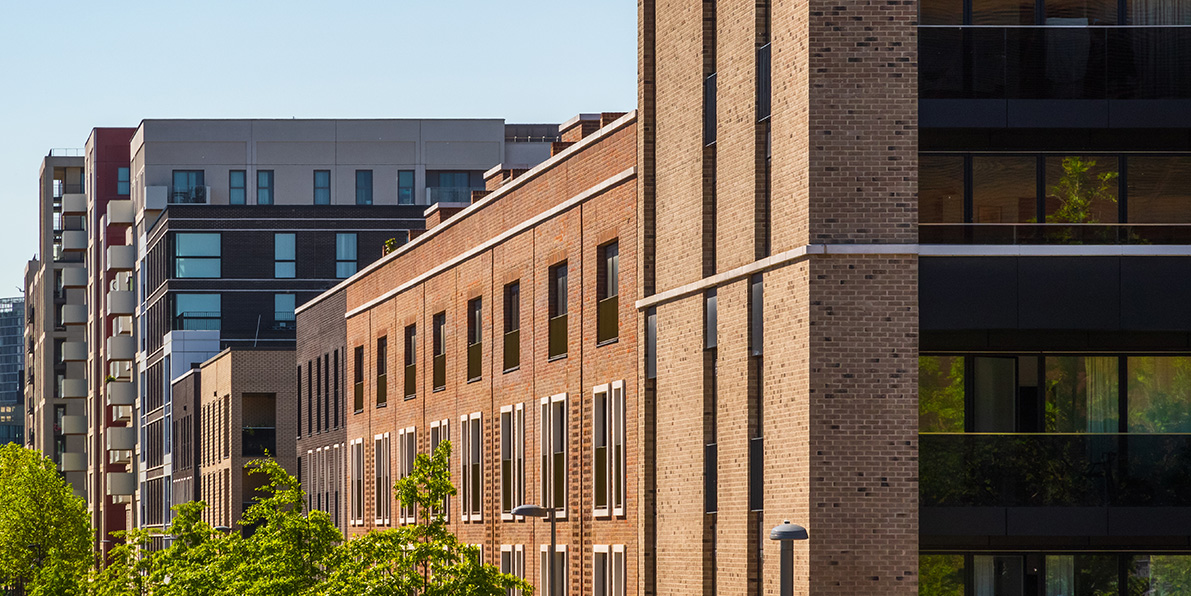Stay service-savvy
Get all the latest news and insights straight to your inbox.

Almost a fifth of UK households live in social homes.
The cost of living crisis has us all feeling the pinch at the moment, and housing associations are no exception. Continued pressure on budgets, a growing need for social housing and increasing demand for digital services are posing a challenge, with limited resources and legacy tech holding the sector back.
Technology-led communication tools offer solutions to a sector in need of assistance, empowering social housing communities with efficient and inclusive platforms that bridge gaps, boost collaboration and cultivate a stronger sense of support.
From virtual assistants to personalised platforms, artificial intelligence is becoming part and parcel of just about everything we do – and businesses are adopting it in a big way.
Research from Gartner found that in 2019, 37% of organisations had already implemented AI in some form. In 2023, a Forbes survey found that the use of AI has grown exponentially – particularly for customer service, where 56% of organisations are using it regularly.
It’s no surprise that housing associations are looking to artificial intelligence as an answer to overstretched resources. Not only can it be used to automate repetitive tasks, thereby reducing the manual admin burden on employees and tenants alike, but it can also be leveraged to improve tenant portals. These portals go beyond traditional interfaces by engaging artificial intelligence to enhance user experience, encouraging self-service, streamlining maintenance requests and enabling real-time collaboration between residents and housing authorities.
Through personalised interactions and predictive analytics, tenants have easy access to relevant information. And, with 24/7 availability, these portals also eliminate the time lag associated with having to wait to speak to a member of staff to raise a request. After all, when the boiler breaks in the night, it’s unlikely that someone will be on hand to take a call.
By automating mundane tasks, these AI-powered portals empower housing authorities to allocate resources more efficiently and proactively address potential issues, transforming social housing into a more responsive, efficient and tenant-focused system.
In this day and age, mobile phones act as something of a fifth limb – keeping us online, connected and able to communicate at the touch of a button. By offering unparalleled accessibility and connectivity, mobile solutions stand out as transformative tools for both housing associations and tenants.
Mobile solutions bring community engagement direct to tenants’ devices, creating a culture of inclusivity. Mobile apps designed for social housing enable residents to access vital information, wherever they are, and whatever they’re doing – allowing them to submit maintenance requests on the go and receive real-time updates on community events from the convenience of their smartphones. What’s more, these apps are designed to enhance communication, facilitating seamless interactions between residents and housing authorities. Integrating features like push notifications ensures that important announcements reach residents promptly, helping to maintain a connected and informed community.
Fast 5G connectivity also offers significant advantages across the public sector, such as significantly lower latency and faster upload speeds. For the housing industry, this includes improvements in onsite teamwork, higher renter satisfaction, faster repair response times, more staff productivity and a reduction in the length of time that properties remain vacant.
Gartner predicts that over 95% of organisations will be using cloud computing by 2025.
It’s clear that moving to cloud-based systems is an essential step in the modern era of social housing operations. Legacy infrastructure, too often found in this sector, is often inefficient and incapable of keeping pace with increasing levels of data traffic. With enhanced efficiency, scalability and data management capabilities, cloud solutions not only ensure accessibility to critical information, but also facilitate seamless collaboration among housing authorities.
The cloud serves as a central hub for housing-related data, enabling real-time updates and streamlined access for employees and tenants alike. Systems can benefit from enhanced data security measures and disaster recovery options, safeguarding sensitive information and ensuring business continuity. Cloud solutions can also flex and scale to meet evolving requirements, allowing new technologies to be seamlessly integrated and services to be expanded as communities grow.
And, for tenants, cloud-based platforms enable convenient access to information like account information, payment histories and community updates. This empowers them to take a more active role in housing-related matters, ultimately resulting in a more engaged and informed community.
With the right digital solutions, associations can reduce housing costs, improve communication and offer the level of service that tenants expect. By leaning into new technologies and implementing a modern, scalable infrastructure, housing associations can position themselves at the forefront of innovation; future-proofing their offering and ensuring they can adapt quickly to changing circumstances. Ultimately, taking a tech-forward approach will lead to more resilient, sustainable and connected communities across the UK’s social housing sector and beyond.
Contact us to discuss how we can support your organisation here.
Unified Communications & Voice, AI, Business Mobile, Cloud, Housing, Digital transformation
Get all the latest news and insights straight to your inbox.